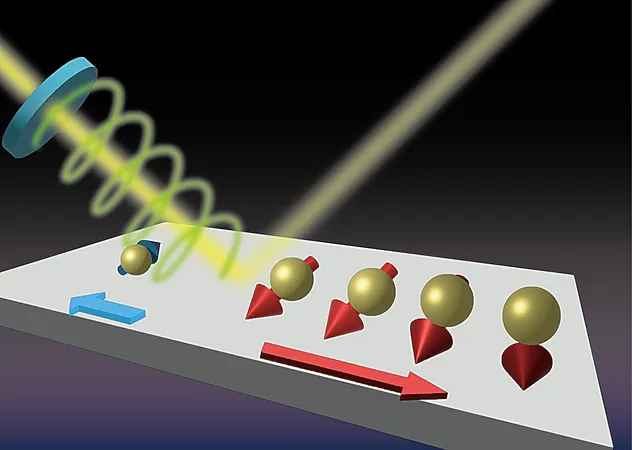
Cannabis Cessation Linked to Reduced Psychotic Disorder Risk—But High Users Beware!
2025-01-21
Author: Ming
Cannabis Cessation Linked to Reduced Psychotic Disorder Risk—But High Users Beware!
Recent research from the esteemed Institute of Psychiatry, Psychology & Neuroscience (IoPPN) at King's College London has revealed an encouraging trend: individuals who stop using cannabis may see their risk of developing psychotic disorders diminish over time.
Published in the Canadian Journal of Psychiatry, the study indicates that after roughly 37 weeks of cannabis abstinence, the likelihood of developing psychosis aligns with that of individuals who have never used the drug. However, this comforting statistic may not apply to frequent consumers of high-potency cannabis strains, who may remain at a higher risk even after 181 weeks of cessation.
Cannabis use has long been linked to an increase in psychotic symptoms, poor mental health, and disrupted sleep patterns, with daily and high-potency users bearing the brunt of this risk. The researchers aimed to investigate how the risk of psychotic disorders in cannabis users evolves over time post-cessation. Utilizing data from the EU-GEI case-control study, which encompasses various regions in Europe and South America, the analysis compared the experiences of 875 first episode psychosis (FEP) patients to 1,230 individuals without psychosis.
Seven key factors concerning cannabis use were meticulously assessed, including lifetime usage, current use, age when first tried, and the duration, frequency, and potency of use. This high level of scrutiny allowed researchers to categorize users according to their cannabis habits and the timing of their cessation, providing a robust analysis of psychosis risk in relation to exposure.
Startlingly, those who recently stopped using cannabis (within one to four weeks) experienced a nearly seven-fold increase in the likelihood of developing psychosis compared to never-users. This alarming trend suggests that for some, withdrawal from cannabis can trigger psychotic symptoms, possibly due to initial anxiety or sleep disturbances.
However, as time goes on, the risks begin to subside. Notably, after five to twelve weeks, the risk of psychotic disorders reduced to three times that of never-users, and after a minimum of 37 weeks of abstinence, there was no significant difference in psychosis risk compared to non-users.
Dr. Isabelle Austin-Zimmerman, a Research Associate at King’s IoPPN and joint senior author of the study, emphasizes the significance of these findings, especially given the growing legalization of cannabis globally. 'Our study is essential as it confirms that prolonged cessation is associated with a decreased risk of psychosis,' she stated.
Nevertheless, it's important to note that the decline in risk is significantly influenced by the nature of one’s cannabis consumption. Professor Marta Di Forti, also a joint senior author and a leading expert in drug use, genetics, and psychosis, cautions: 'People who use cannabis daily or favor high-potency strains might still face heightened risks even after quitting, highlighting the critical need for support during cessation.'
These findings are particularly relevant as the movement towards cannabis legalization gains traction, raising concerns and awareness about the mental health ramifications of cannabis use. The researchers plan to validate these results through longitudinal studies in the near future, hoping to deepen the understanding of cannabis use and its long-term effects on mental health.
As we move forward, the takeaway is clear: while stopping cannabis use can significantly reduce the risk of psychotic disorders, it is crucial for heavy users and those consuming high-potency cannabis to approach cessation with caution and seek professional guidance. The journey toward mental wellness is a marathon, not a sprint!



 Brasil (PT)
Brasil (PT)
 Canada (EN)
Canada (EN)
 Chile (ES)
Chile (ES)
 Česko (CS)
Česko (CS)
 대한민국 (KO)
대한민국 (KO)
 España (ES)
España (ES)
 France (FR)
France (FR)
 Hong Kong (EN)
Hong Kong (EN)
 Italia (IT)
Italia (IT)
 日本 (JA)
日本 (JA)
 Magyarország (HU)
Magyarország (HU)
 Norge (NO)
Norge (NO)
 Polska (PL)
Polska (PL)
 Schweiz (DE)
Schweiz (DE)
 Singapore (EN)
Singapore (EN)
 Sverige (SV)
Sverige (SV)
 Suomi (FI)
Suomi (FI)
 Türkiye (TR)
Türkiye (TR)